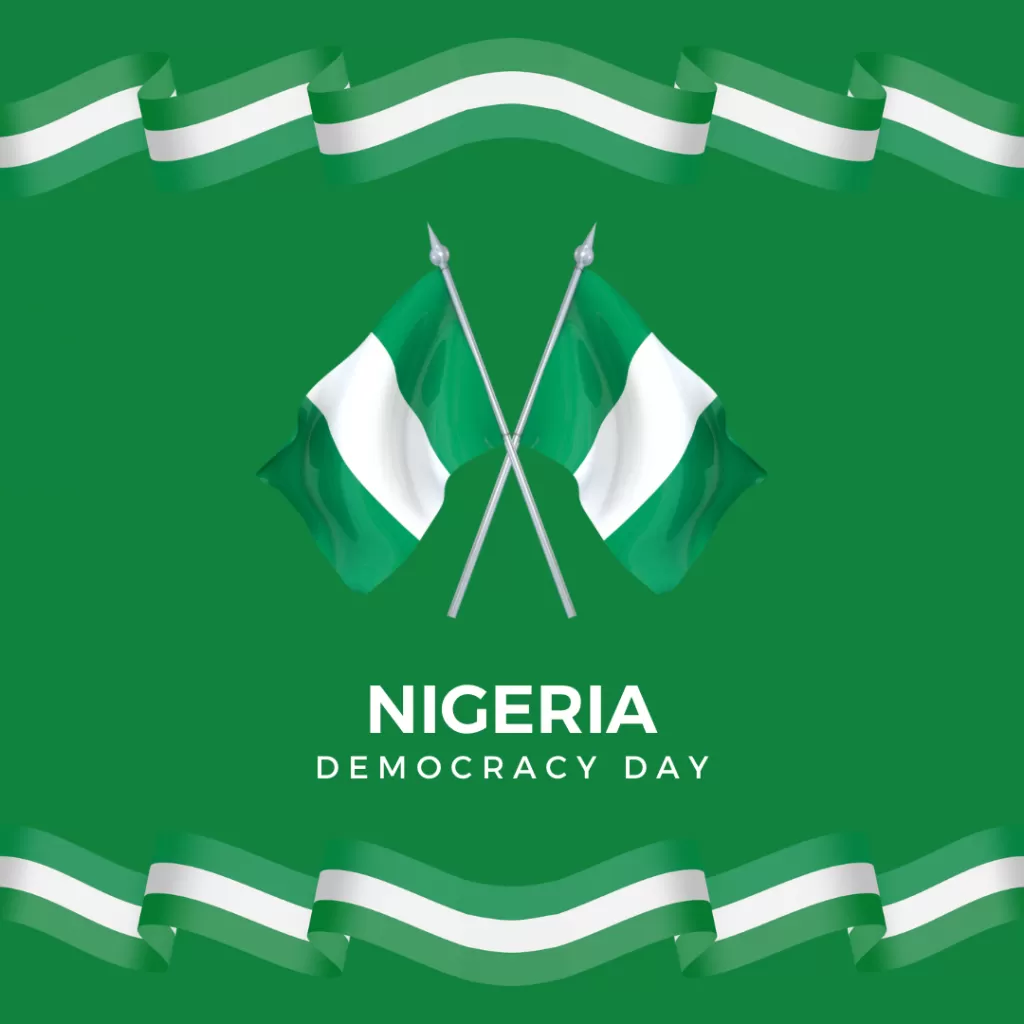Nigeria Celebrates 26 Years of Uninterrupted Democracy: A Milestone of Resilience and Renewal

On June 12, 2025, Nigeria proudly commemorates 26 years of uninterrupted democratic governance, a significant milestone since the return to civilian rule in 1999. This year’s Democracy Day, declared a public holiday, carries the theme “26 Years of Democracy: Renewing Our Commitment to National Development.” The occasion offers an opportunity for reflection on Nigeria’s democratic journey, its achievements, challenges, and the collective resolve to forge a stronger future.
A National Celebration with High-Level Events
President Bola Ahmed Tinubu is set to mark the occasion with a series of events that underscore the importance of this milestone. According to reports from the State House, the president will deliver a nationwide address to the nation, outlining the government’s vision for sustaining democratic ideals and fostering national development. Additionally, Tinubu is expected to attend a special joint sitting of the National Assembly in Abuja, where he will confer national honors on selected legislators for their contributions to Nigeria’s democratic process.
However, in a departure from tradition, the planned military parade, which typically forms a centerpiece of Democracy Day celebrations, has been canceled for 2025. Earlier announcements of a nationwide broadcast were also rescinded, though the presidency has assured Nigerians that other commemorative activities will proceed as planned. These events are designed to honor the sacrifices of those who fought for Nigeria’s democracy, particularly the heroes of the June 12, 1993, presidential election, widely regarded as the freest and fairest in the nation’s history.
Reflecting on 26 Years of Democracy
Nigeria’s democratic journey since 1999 has been one of resilience, marked by significant achievements and persistent challenges. The transition to civilian rule in 1999, following years of military regimes, ushered in an era of political stability, with six successful democratic transitions through general elections. The establishment of June 12 as Democracy Day in 2018 by former President Muhammadu Buhari was a nod to the historic 1993 election, won by the late Moshood Abiola but annulled by the military government.
Over the past 26 years, Nigeria has made strides in institutionalizing democratic governance. The country has seen the growth of independent electoral processes, the strengthening of democratic institutions like the Independent National Electoral Commission (INEC), and the expansion of civic space for political participation. The judiciary has also played a pivotal role in upholding democratic principles, often serving as a check on executive and legislative powers.
However, the journey has not been without hurdles. Public sentiment, as reflected in posts on X, reveals a mix of pride and frustration. Many Nigerians celebrate the endurance of democracy, with some users noting the significance of 26 years of civilian rule as a testament to the nation’s resilience. Others, however, point to persistent challenges that have hindered the full realization of democratic dividends. Issues such as poor infrastructure, widespread corruption, insecurity, and economic hardship remain sore points for many citizens. One X user remarked, “26 years of democracy, yet we’re still battling basic issues like electricity and security. We need more than celebrations—we need results.”
Renewing Commitment to National Development
This year’s theme, “Renewing Our Commitment to National Development,” underscores the need for collective action to address Nigeria’s challenges and build a more inclusive and prosperous nation. The Tinubu administration has emphasized policies aimed at economic diversification, infrastructure development, and security reforms. However, public discourse suggests that Nigerians are eager for tangible outcomes, particularly in areas like job creation, poverty reduction, and improved governance.
The Democracy Day celebration serves as a call to action for both leaders and citizens. For the government, it is an opportunity to reaffirm its commitment to transparent and accountable governance. For citizens, it is a reminder of their role in holding leaders accountable and participating actively in the democratic process. Civil society organizations and advocacy groups have also used the occasion to urge for reforms, including greater youth and women’s participation in politics and the strengthening of anti-corruption measures.
A Moment of Unity and Reflection
As Nigeria celebrates 26 years of democracy, the occasion is both a moment of pride and a call for introspection. The nation has come a long way since the dark days of military rule, but the work of building a truly democratic society remains ongoing. The cancellation of certain events, such as the military parade, does not diminish the significance of the day but rather shifts the focus to substantive dialogue about Nigeria’s future.
President Tinubu’s participation in the National Assembly’s special session and the conferment of national honors are symbolic gestures that highlight the importance of recognizing those who have contributed to Nigeria’s democratic progress. Yet, as posts on X suggest, Nigerians are looking beyond symbolism to practical solutions that address the nation’s pressing needs.
Looking Ahead
As Nigeria marks this historic milestone, the message is clear: democracy is not just about elections or governance structures—it is about delivering on the promises of freedom, equality, and prosperity for all. The theme of renewing commitment to national development resonates deeply in a country with immense potential and equally significant challenges. By addressing issues like insecurity, economic inequality, and institutional weaknesses, Nigeria can ensure that the next 26 years of democracy are even more transformative.





